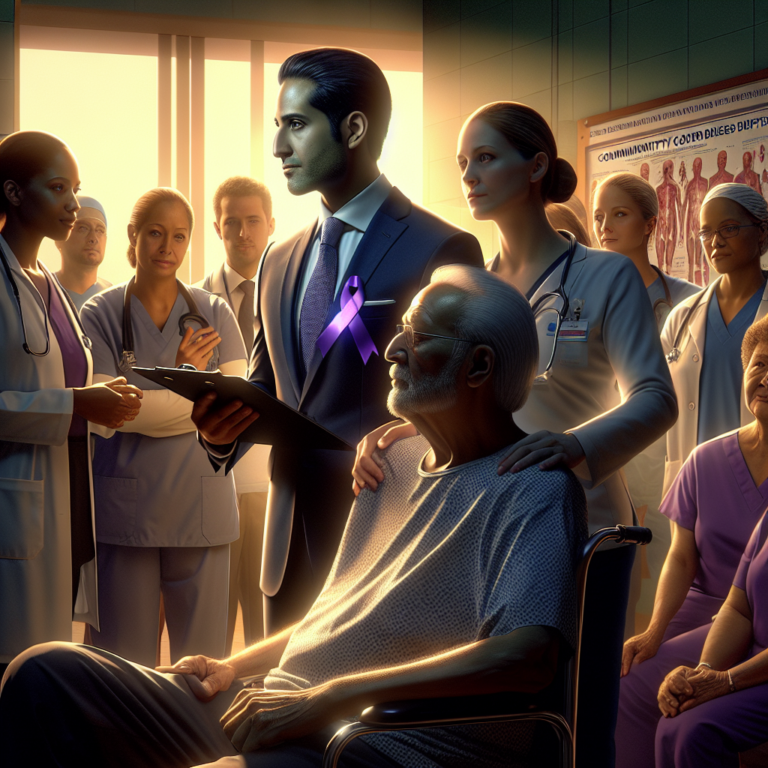Unlocking Hope: How Clinical Trials Are Paving the Way for Innovative Cures for Patients and Clinicians

In May 2014, I faced a life-altering diagnosis of stage IV pancreatic adenocarcinoma, a reality that began with subtle signs just five weeks before. I experienced jaundice due to a tumor nestled at the head of my pancreas. Initially, doctors believed the cancer was at stage II, leading to a Whipple procedure that was ultimately halted when metastasis to my liver was discovered. The prognosis was grim, with doctors advising me to prepare for the worst—but I was determined to fight back.
Exploring Clinical Trials for Hope
After consulting with multiple specialists, I found a clinical trial at the Virginia G. Piper Cancer Center, affiliated with Honor Health Network in Scottsdale, Arizona. This facility was conveniently located less than 30 minutes from my home, and the treatment I received there was nothing short of remarkable.
The clinical trial involved two established chemotherapy drugs, gemcitabine and Abraxane, alongside a third drug, cisplatin, not yet approved for pancreatic cancer. The results were astonishing: after just six treatments, tumor growth ceased, and my CA 19-9 marker dropped by over 70%. By the end of the treatment protocol, scans revealed no detectable cancer, and my CA 19-9 marker fell into the low teens.
- Chemotherapy Completion: November 2014
- No Cancer Found: Subsequent scans showed no signs of the disease.
The Challenge of Recurrence
Despite this significant progress, pancreatic cancer is notoriously persistent. By April 2015, my CA 19-9 levels began to rise again, indicating renewed activity in the primary tumor. This prompted me to restart chemotherapy, which I continued for four months. After this regimen, follow-up scans revealed no active cancer in my pancreas or elsewhere.
A Pivotal Exploratory Surgery
In January 2016, it became evident that the primary tumor was once again on the rise. With chemotherapy seemingly outsmarted by the cancer, I considered alternative treatments. I opted for exploratory surgery at the Mayo Clinic in Phoenix, overseen by Dr. Winston Hewitt. This meticulous procedure revealed no metastatic disease, allowing the Whipple surgery to proceed successfully, with clean margins reported in pathology.
The Transformative Experience of Clinical Trials
Participating in clinical trials provided me with an exceptional level of care. My initial consultation with oncologist Dr. Erkut Borazanci extended over two hours, where he thoroughly explained the disease, the efficacy of the chemotherapy drugs, and the rationale for including cisplatin in my treatment plan. His insights and answers to my questions instilled me with hope.
The clinical staff at the cancer center was equally impressive. Although each infusion required a nine-hour commitment, I faced minimal wait times. The supportive medications alleviated nausea and fatigue, allowing me to maintain a part-time job while undergoing treatment.
- Chemotherapy Duration: 9 hours per infusion
- Supportive Medications: Helped manage side effects
Though there were tough days during treatment, the experience of chemotherapy was not as daunting as portrayed in the media. The contributions made by myself and fellow participants in the clinical trial have the potential to advance knowledge and treatment options for future patients.
Clinical trials not only offer hope to patients but also pave the way for researchers seeking breakthroughs in treating this challenging disease. If you’re eligible, I strongly encourage considering participation in a clinical trial.
Philip bravely battled stage IV pancreatic cancer for nearly four years. His involvement in clinical trials significantly contributed to ongoing research efforts. Our heartfelt condolences go out to his family.





